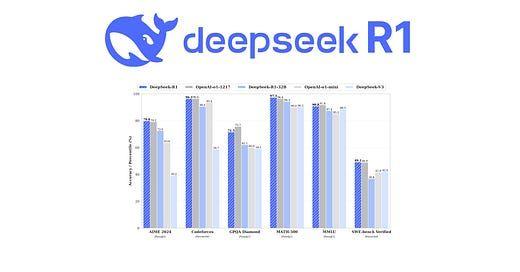
Nancy Wambui
Shiftpulse Marketers
TL;DR: Kenya's digital marketing regulations require businesses to comply with the Data Protection Act, consumer protection laws, and fair competition principles. Key rules focus on lawful data processing, transparency, security, consent-based marketing, and localization requirements. Navigating these evolving regulations is crucial for sustainable digital growth and avoiding legal challenges
Navigating Digital Marketing Regulations and Compliance in Kenya
Digital marketing in Kenya offers exciting opportunities for businesses to reach a growing online audience. However, it's crucial to navigate the evolving regulatory landscape to ensure compliance and avoid potential legal challenges. This analysis provides a comprehensive overview of the key regulations, guidelines, and best practices for digital marketing in Kenya.
Digital Marketing Regulations and Legal Considerations in Kenya
Kenya's legal framework for digital marketing is rooted in several key acts and regulations:
- The Constitution of Kenya 2010: This foundational document guarantees fundamental rights, including the right to privacy, which is central to data protection and digital marketing practices1. It also provides for consumer rights with respect to goods and services2.
- The Data Protection Act 2019: This Act, along with the Data Protection (General) Regulations 2021, establishes comprehensive rules for collecting, processing, and storing personal data, with significant implications for digital marketing activities1.
- The Kenya Information and Communication (Consumer Protection) Regulations 2010 (KICA Regulations): These regulations address consumer rights and protection in the digital space, including aspects of direct marketing and unsolicited communications1.
These legal frameworks emphasize the importance of obtaining consent, ensuring data security, and respecting consumer privacy in digital marketing campaigns.
In addition to these specific laws, it's important to understand the broader context of digital market regulation in Kenya. The rise of digital platforms has introduced a new paradigm of market competition, characterized by network effects and data dominance3. Network effects mean that the value of a digital platform increases with each new user, often leading to the dominance of a single entity. This, coupled with the ability of digital platforms to leverage vast amounts of user data, creates challenges for regulators in ensuring fair competition and consumer protection3.
Data Protection, Advertising Standards, and Consumer Rights
Data Protection
The Data Protection Act outlines key principles for data protection that directly impact digital marketing:
- Lawful, Fair, and Transparent Processing: Data collection must be lawful, fair, and transparent, with individuals informed about how their data will be used. This means that businesses must have a valid legal basis for collecting data, such as consent, and must be open and honest about their data processing activities1. For example, a company running an online contest must clearly state how the collected data will be used, whether for marketing purposes or solely for the contest4.
- Purpose Limitation: Data should be collected for specific, explicit, and legitimate purposes and not processed in a manner incompatible with those purposes. This means that businesses cannot use data collected for one purpose for a different, unrelated purpose without obtaining further consent1. For instance, if a customer provides their email address to receive order updates, the company cannot use that email address for marketing newsletters without explicit permission.
- Data Minimization: Only necessary data should be collected and processed. Businesses should only collect the data that is absolutely essential for the intended purpose and avoid collecting excessive or irrelevant information1. For example, an online store should not ask for a customer's date of birth if it's not necessary for processing the order or providing the service.
- Accuracy: Data must be accurate and kept up to date. Businesses have a responsibility to ensure that the personal data they hold is accurate and, where necessary, updated. Inaccurate data should be corrected or deleted without delay4. This is particularly important for marketing databases, where inaccurate information can lead to misdirected campaigns and wasted resources.
- Storage Limitation: Data should not be stored longer than necessary for the purpose for which it was collected. Once the data is no longer needed, it should be securely deleted or anonymized4. This principle helps to minimize the risk of data breaches and ensures that businesses are not holding on to personal data unnecessarily.
- Integrity and Confidentiality: Data must be processed securely and confidentially. Businesses must implement appropriate technical and organizational measures to protect personal data from unauthorized access, disclosure, or destruction1. This includes measures such as data encryption, access controls, and regular security assessments.
Furthermore, the Data Protection Act includes localization requirements, mandating that personal data be processed through a data center located in Kenya or that a serving copy of the data be stored in Kenya5. This provision aims to ensure that Kenyan citizens' data is subject to Kenyan law and oversight.
Digital marketers must adhere to these principles when collecting and using personal data for marketing purposes, including obtaining valid consent, providing opt-out mechanisms, and ensuring data security6.
Advertising Standards
The Advertising Standards Code in Kenya aims to ensure ethical and responsible advertising practices. It applies to all forms of advertising, including digital marketing7. The code promotes principles such as truthfulness, accuracy, decency, and social responsibility in advertising content.
The Media Council of Kenya provides a Code of Conduct for the Media, which includes sections relevant to digital media practitioners. This code encourages separating endorsements and advertising from editorial content and using clear labels like "#ad" or "#sponsored" for sponsored content8. This helps to maintain transparency and ensure that consumers can distinguish between objective content and paid promotions.
Consumer Rights
Consumer rights in Kenya are protected under Article 46 of the Constitution. This includes the right to goods and services of reasonable quality, access to information, protection of health and economic interests, and compensation for loss or injury9. Consumers also have the right to information necessary for them to gain full benefit from goods and services, the right to protection of their health, safety, and economic interests, and the right to compensation for loss or injury arising from defects in goods or services2.
In the digital marketing context, consumer rights extend to data protection, privacy, and fair advertising practices. Consumers have the right to control their personal data, opt out of marketing communications, and be protected from misleading or deceptive advertising2. This includes the right to access their personal data, correct any inaccuracies, and object to the processing of their data for marketing purposes.
It's important to note the increasing use of digital financial services and mobile money in Kenya10. With a high penetration of mobile money usage, consumer protection concerns in the digital finance sector are particularly relevant. This highlights the need for digital marketers to be especially mindful of consumer rights and responsible lending practices when engaging in financial product marketing.
Navigating the evolving landscape of consumer rights in digital marketing requires a careful balance between protecting consumer privacy and fostering innovation3. Regulations must be robust enough to safeguard consumers but also flexible enough to allow for the continued growth and development of the digital economy.
Best Practices for Compliance
To ensure compliance with digital marketing regulations in Kenya, businesses should adopt the following best practices:
- Obtain Explicit Consent: Obtain clear and unambiguous consent before collecting or using personal data for marketing purposes. This means using clear and concise language, avoiding pre-ticked boxes, and providing users with a genuine choice to opt in or out6.
- Provide Opt-Out Mechanisms: Offer users easy and accessible ways to opt out of marketing communications, such as unsubscribe links in emails and clear instructions on how to withdraw consent6. This empowers consumers to control their communication preferences and strengthens trust in the brand.
- Be Transparent: Clearly communicate how you collect, use, and store user data. Provide privacy policies that are easily accessible, written in plain language, and readily available on your website and marketing materials1. Transparency builds trust and demonstrates a commitment to ethical data handling practices.
- Respect User Privacy: Avoid intrusive data collection practices and ensure data security measures are in place. This includes minimizing the collection of sensitive personal data, implementing strong data encryption and access controls, and conducting regular security audits3.
- Ensure Advertising Accuracy: Ensure all marketing claims are truthful and accurate, avoiding misleading or deceptive information. This includes substantiating claims with evidence, using clear and unambiguous language, and being transparent about any limitations or conditions8.
- Monitor and Adapt: Stay informed about updates to regulations and adapt your digital marketing strategies accordingly. The digital marketing landscape is constantly evolving, with new laws and guidelines emerging regularly. Businesses need to stay abreast of these changes and proactively adjust their practices to maintain compliance.
In addition to these general best practices, consider specific guidelines for different digital marketing channels:
- Social Media Marketing: When engaging in social media marketing, focus on creating visually appealing and culturally relevant content that resonates with the Kenyan audience11. Utilize user-generated content, such as customer reviews and testimonials, to enhance credibility and encourage engagement.
- Email Marketing: For email marketing, prioritize building your email lists organically rather than purchasing lists12. This ensures that you are communicating with individuals who have genuinely expressed interest in your products or services. Utilize remarketing techniques to re-engage users who have previously interacted with your website or marketing materials13.
Legal Challenges and Penalties for Non-Compliance
Non-compliance with digital marketing regulations can lead to various legal challenges for businesses in Kenya:
- Data Breaches: Failure to protect personal data can result in data breaches, leading to legal action, reputational damage, and financial losses. This can involve unauthorized access to personal data, accidental disclosure, or loss of data due to inadequate security measures1.
- Consumer Complaints: Non-compliant marketing practices can lead to consumer complaints and investigations by regulatory authorities. This can include complaints about unsolicited marketing communications, misleading advertising, or unfair data collection practices14.
- Enforcement Actions: The Office of the Data Protection Commissioner (ODPC) can issue enforcement notices and impose penalties for non-compliance. This can involve orders to cease non-compliant activities, rectify data breaches, or implement data protection measures15.
Examples of Legal Challenges
One specific legal challenge faced by businesses in Kenya is the risk of sharing data with non-compliant third parties1. If a business shares personal data with another organization that does not adhere to the Data Protection Act, the original business can also be held liable for any data breaches or misuse that occurs. This highlights the importance of conducting due diligence and ensuring that any third-party data processors comply with data protection regulations.
Another challenge arises from the jurisdictional complexities of e-commerce. Companies that engage in online transactions may face legal claims in multiple jurisdictions based on their website content, product defects, or data protection practices16. This can create challenges in terms of legal compliance, dispute resolution, and managing potential liabilities.
Penalties for non-compliance can include:
| Violation | Penalty |
Works cited
1. An Overview of the Kenyan Law on Commercial Use of Personal Data, accessed January 23, 2025, https://cipit.strathmore.edu/an-overview-of-the-kenyan-law-on-commercial-use-of-personal-data/
2. Consumer Rights And Unfair Practices In Kenya | A.B. Patel & Patel LLP, accessed January 23, 2025, https://www.abpateladvocates.com/consumer_rights_and_unfair_practices_in_kenya.php
3. Regulating Digital Markets: Beyond Traditional Rules | KICTANet Think Tank, accessed January 23, 2025, https://www.kictanet.or.ke/regulating-digital-markets-beyond-traditional-rules/
4. Data Privacy in Kenya: A Comprehensive Overview - Njaga & Co. Advocates, accessed January 23, 2025, https://njagaadvocates.com/data-privacy-in-kenya-a-comprehensive-overview/
5. PERSONAL-DATA-PROTECTION-HANDBOOK.pdf, accessed January 23, 2025, https://www.odpc.go.ke/wp-content/uploads/2024/02/PERSONAL-DATA-PROTECTION-HANDBOOK.pdf
6. Electronic Marketing in Kenya - DLA Piper Global Data Protection Laws of the World, accessed January 23, 2025, https://www.dlapiperdataprotection.com/index.html?t=electronic-marketing&c=KE
7. Code Of Advertising Practice & Direct Marketing, accessed January 23, 2025, https://advertisingstandards.or.ke/wp-content/uploads/2022/02/ASC-CAP-Part-I.pdf
8. Code of Conduct for Digital Media Practitioners, accessed January 23, 2025, https://mediacouncil.or.ke/sites/default/files/downloads/Code%20of%20Conduct%20for%20Media%20Practitioners.pdf
9. CONSUMER PROTECTION GUIDELINES - Competition Authority Of Kenya, accessed January 23, 2025, https://cak.go.ke/sites/default/files/guidelines/consumer-protection/Consumer%20Protection%20Guidelines.pdf
10. Understanding Consumer Protection Risks Faced by Kenyan Digital Finance Users | IPA, accessed January 23, 2025, https://poverty-action.org/study/understanding-consumer-protection-risks-faced-kenyan-digital-finance-users
11. E-commerce in Kenya:Digital Marketing Strategies - TAGiAfrica, accessed January 23, 2025, https://www.tagi.africa/digital-marketing-strategies-4-e-commerce-in-kenya/
12. Best Practices for Digital Marketing Compliance, accessed January 23, 2025, https://act-on.com/learn/blog/best-practices-digital-marketing-compliance/
13. Digital Marketing in Kenya: The Ultimate Guide (2025) | Creative Kigen, accessed January 23, 2025, https://creativekigen.com/digital-marketing-in-kenya-the-ultimate-guide-2019/
14. Electronic Commerce Law with A Special Emphasis on The Kenya Legal Tax and Regulatory Challenges - B M Musau & Company, Advocates LLP, accessed January 23, 2025, https://www.bmmusau.com/electronic-commerce-law-with-a-special-emphasis-on-the-kenya-legal-tax-and-regulatory-challenges/
15. Data protection compliance in Kenya: ODPC issues penalty notices to three data controllers, accessed January 23, 2025, https://www.clydeco.com/en/insights/2023/10/data-protection-compliance-in-kenya-odpc
16. Legal and regulatory challenges facing the growth of E –commerce in Kenya - UoN Digital Repository, accessed January 23, 2025, https://erepository.uonbi.ac.ke/bitstream/handle/11295/99692/Munyalo%20Robinson%20Nthuli%20%20LLM%202016.pdf?sequence=1




![Top 10 Digital Marketing Agencies in Kenya [2025 Rankings]](/_next/image?url=https%3A%2F%2Fcdn.sanity.io%2Fimages%2Fvhsaz9nz%2Fproduction%2Fe391482b6038dfd55aa53b9fbe32c8a798503629-500x500.png&w=3840&q=75)








